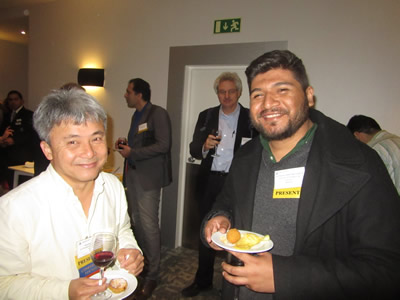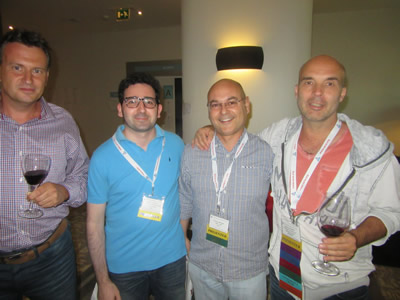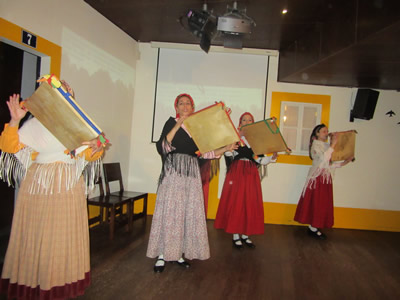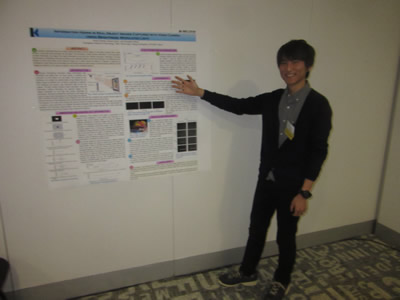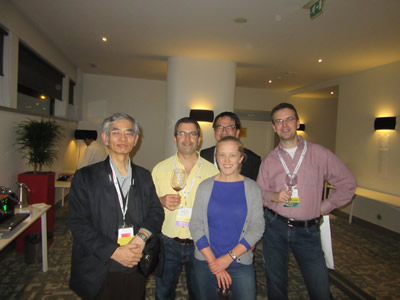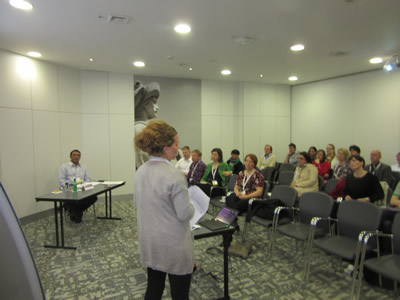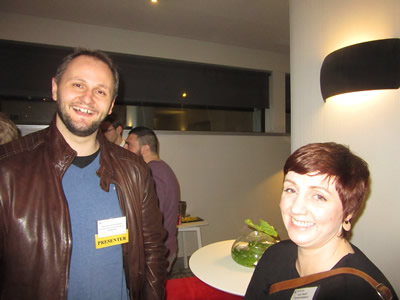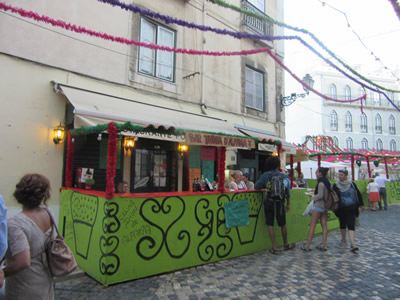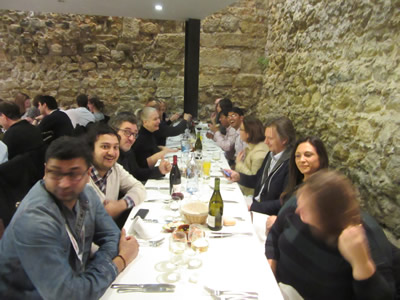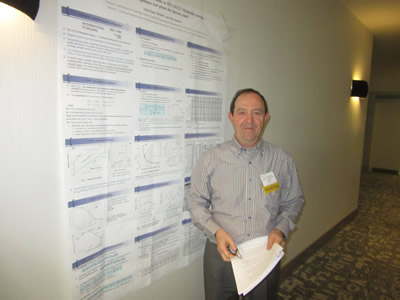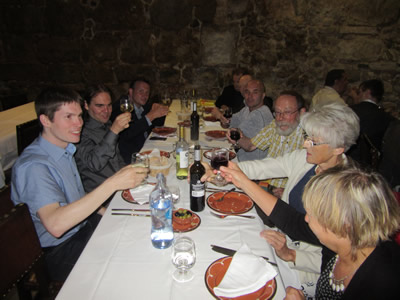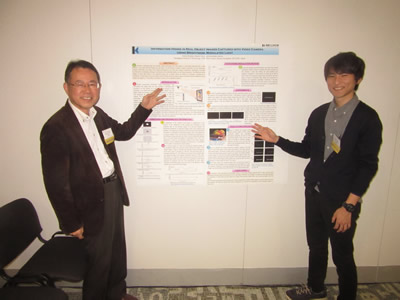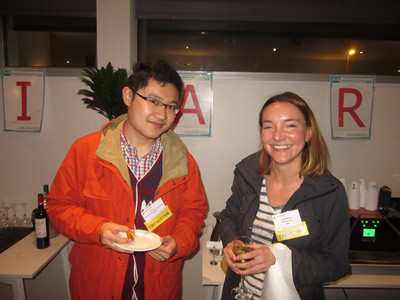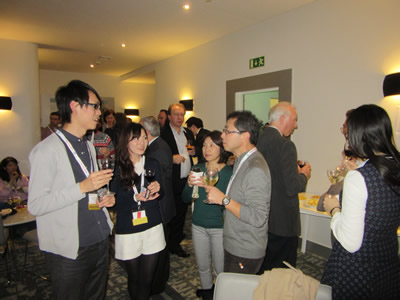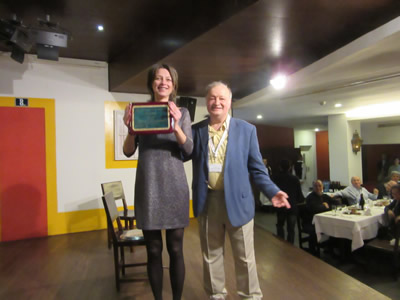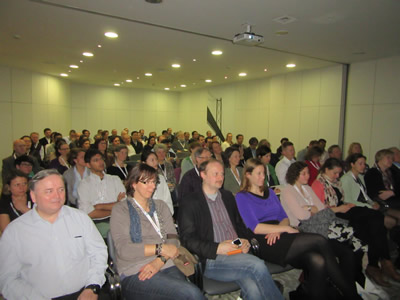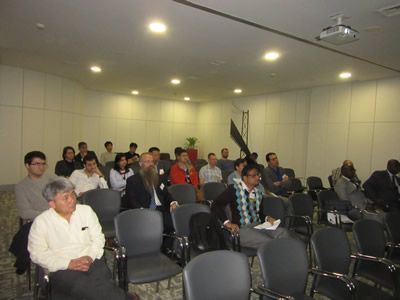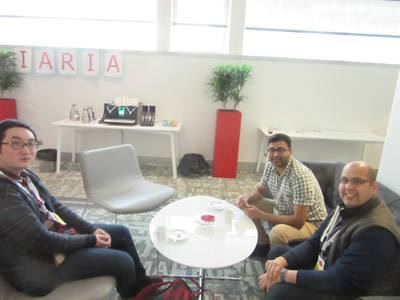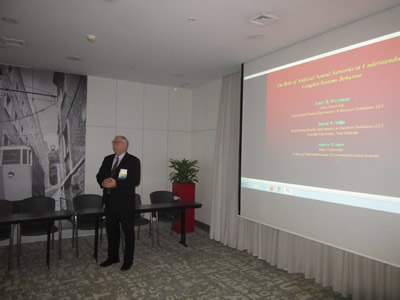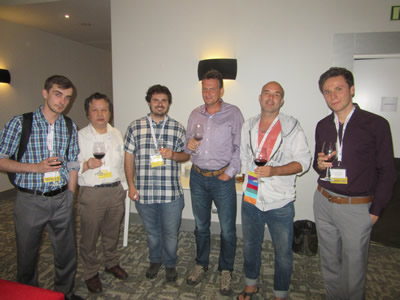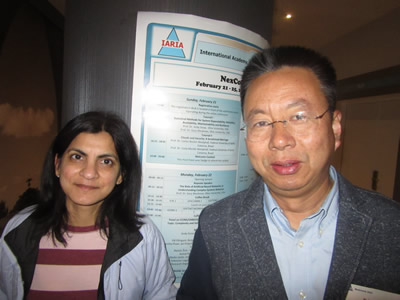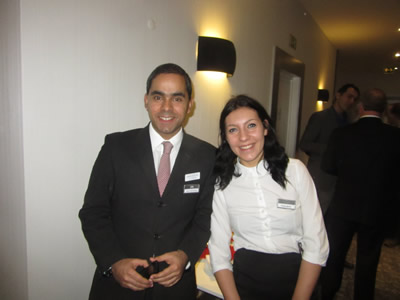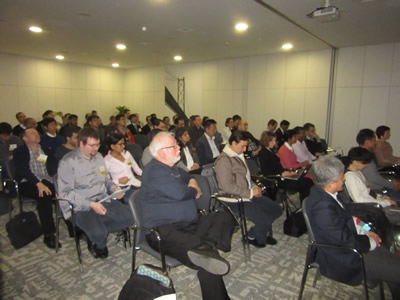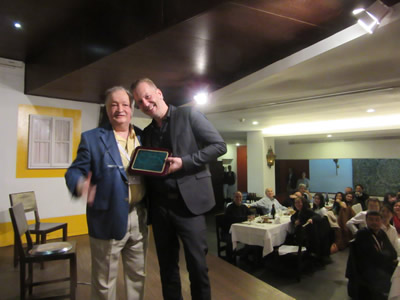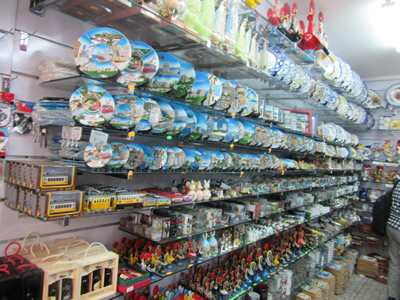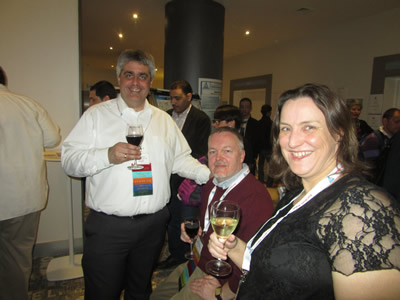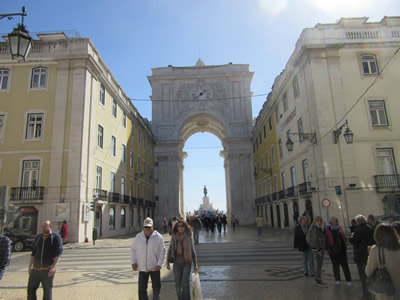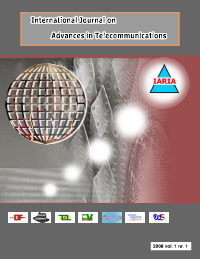INNOV 2025 - The Fourteenth International Conference on Communications, Computation, Networks and Technologies
September 28, 2025 - October 02, 2025
INNOV 2025: Call for Papers
Onsite and Online Options: In order to accommodate various situations, we are offering the option for either physical presence or virtual participation (pdf slides or pre-recorded videos).
Considering the importance of innovative topics in today’s technology-driven society, there is a paradigm shift in classical-by-now approaches, such as networking, communications, resource sharing, collaboration and telecommunications. Recent achievements demand rethinking available technologies and considering the emerging ones. INNOV 2025 aims at addressing recent research results and forecasting challenges on selected topics.
We solicit both academic, research, and industrial contributions. We welcome technical papers presenting research and practical results, position papers addressing the pros and cons of specific proposals, such as those being discussed in the standard fora or in industry consortia, survey papers addressing the key problems and solutions on any of the above topics short papers on work in progress, and panel proposals.
Industrial presentations are not subject to the format and content constraints of regular submissions. We expect short and long presentations that express industrial position and status.
Tutorials on specific related topics and panels on challenging areas are encouraged.
The topics suggested by the conference can be discussed in term of concepts, state of the art, research, standards, implementations, running experiments, applications, and industrial case studies. Authors are invited to submit complete unpublished papers, which are not under review in any other conference or journal in the following, but not limited to, topic areas.
All topics and submission formats are open to both research and industry contributions.
INNOV 2025 conference tracks:
Trends and achievements
Software defined data centers; Botnet in SDNs; Software defined 5G networks; HetNets and 5G; Smart buildings and IoT; Secure SDNs; Standardization for IoTs; 4G to 5G translation; Managing 5G LTE-Advanced networks; LTE heterogeneous networks; LTE-R measurements; Scheduling for LTE-Advanced; Traffic with Big Data; QoE-aware radio; QoS and QoE in LTE networks; Telecommunications in Smart Cities; IoT virtual networks; Device-to-device Internet; Mobile clouds; Smart and sustainable cities; Public data centers; Traffic profiles in data centers; Smart energy; Electric vehicles, Car Connectivity; Green communications systems
Communications
Communication paradigms; Communications modeling; Communications switching and routing; Communications security; Computer communications; Distributed communications; Signal processing in communications
Computing
Computational science; Green Computing; Distributed Cloud computing; Cluster, Grid, and P2P computing; Mobile computing; Big Data Processing; High performance computing; Knowledge Management; Collaborative Computing; Internet computing; Social Computing; Sentiment analytics; Bio-inspired computation; Natural language processing; Computational social systems; Immersive communications
Mobility and Ubiquity
Mobile Cloud; Cloud-based mobile services and applications; Mobile Internet services; Mobility-oriented protocols /Mobile IP, etc./; Wearable and/or mobile technologies; Self-discovery and localizing entities; Seamless handover; Ubiquitous computing; Pervasive and embedded systems; Ubiquitous sustainability; Sensing location; Citizen activity patterns; Smart environments in the workplaces; Ubiquitous cities; Internet of Things architectures; Autonomous and autonomic systems; Self-manageable systems
Web Semantic and Data Processing
Visualizing Web data and big data; Programming patterns for semantic search; Metrics for data quality; Platforms, methodologies and tools for semantic web design; Linked data and deep web; Development of interoperable web applications; Data analysis of semantic web; Mashing up data and processes; Big data and semantic representation; New semantic-enabled capabilities and existing IDEs; Provenance of semantic data, processes and services; Web-based database integration; Semantic intelligence on the Web; Linked-data enhanced social learning and Web intelligence; Programming semantic mining and retrieval mechanisms
Security, Trust, and Privacy
Security and Privacy for Internet of Things and Cyber-Physical Systems; Security control and management in smart cities; Trust and credential negotiations in dynamic environments; Privacy and citizen-profiles; Intrusion prevention and containment; Security in clouds and visualization approaches; Architectural support for security; Security, privacy, and dependability; Security in cooperative networks; Data protection strategies; Collaborative Internet attack containment; Micro-kernels and robustness; Surveillance; Biometrics; Electronic Data Interchange (EDI); Cyber Security; Cryptography; Secure protocols
Optimization and Protection
Performance modeling and analysis; Internet modeling; Parameter estimation for adaptation of wireless communication systems; Trust, security and privacy issues; Encryption algorithm in sensor networks; Web Services Security; Adaptive wireless communication systems; Quality of Service, scalability and reliability; Power aware and energy efficient design; Energy-efficient data centers; Emission modeling and environmental impact assessment of vehicular networks
Shared Resources
Medium access control and routing protocols; Spectrum sensing techniques, spectrum efficiency and soft spectrum usage; Femto-cells and cognitive radios networks; Ultra-wideband for spectrum sharing; New applications in TV-band white space; Interference mitigation and awareness; Spectrum-management regulation and policy making; Mobility or handover technology; Application of software defined radio advanced communication systems; Information content security; Storage performance and scalability; File systems, object-based storage, and block storage; Energy-aware storage
Communication and Services
Content distribution networks; Multimedia Communications; Audio, Image and Video Processing; Information aggregation and dissemination; Data-collection, organization and dissemination methods; Data management in mobile Peer-to-Peer networks; Data stream processing in mobile/sensor networks; Ultrawideband systems; Optical communications and networks; Vehicular communications; Smart grid communications; Green communications and networks; Cognitive communications
Social Networks and Services
New architectures for Web-based social networks; Collaborative social systems (e/m-learning, e-healthcare, gaming); Information propagation on social networks; Resource and knowledge discovery using social networks; Peer-to-Peer social networks; Sensor networks and social sensing; Social networking solutions for pervasive and mobile environments; Social search; Social analytics; Measurement studies of current social networks; Simulation models for social networks; User interfaces and usability issues from mobile applications mobile social networks
Networking and Telecommunications
New ITS and Telematics applications; ITS and Telematics services; Design with multiple wireless data links; Mobility or handover technology; Multiple antenna systems; Physical layer and antenna technologies; RF propagation models for vehicularnetworks; Network architectures and protocols; Cross-layer designs and architectures; Mobility management and topology control; Spectrum, network, context, environment, location awareness; Heterogeneous networking; Wireless networking; Advanced 5G approaches; Ad hoc, sensor and mesh networks; Devices for ubiquity networking (smart-phones, tablets, and netbooks); Software-defined systems; Content-oriented systems
Deadlines:
Submission | Jun 27, 2025 |
Notification | Jul 28, 2025 |
Registration | Aug 10, 2025 |
Camera ready | Aug 24, 2025 |
Deadlines differ for special tracks. Please consult the conference home page for special tracks Call for Papers (if any).
INSTRUCTION FOR THE AUTHORS
Authors of selected papers will be invited to submit extended versions to one of the IARIA Journals.
Publisher: XPS (Xpert Publishing Services)
Archived: ThinkMindTM Digital Library (free access)
Prints available at Curran Associates, Inc.
How to submit to appropriate indexes.
Only .pdf or .doc files will be accepted for paper submission. All received submissions will be acknowledged via an automated system.
Contribution types
- regular papers [in the proceedings, digital library]
- short papers (work in progress) [in the proceedings, digital library]
- ideas: two pages [in the proceedings, digital library]
- extended abstracts: two pages [in the proceedings, digital library]
- posters: two pages [in the proceedings, digital library]
- posters: slide only [slide-deck posted on www.iaria.org]
- presentations: slide only [slide-deck posted on www.iaria.org]
- demos: two pages [posted on www.iaria.org]
FORMATS
Only .pdf or .doc files will be accepted for paper submission. All received submissions will be acknowledged via an automated system.
Final author manuscripts will be 8.5" x 11", not exceeding 6 pages; max 4 extra pages allowed at additional cost.
Helpful information for paper formatting for MS Word can be found here.
There is a community provided LaTeX template: the CTAN package iaria (with full IARIA formatting rules, including IARIA citation style, but for providing citation style it is tightly bound to pdflatex+biblatex+biber). In addition, there is also iaria-lite (not bound to pdflatex+biblatex+biber, but compatible with any TeX stack; thus, it cannot provide the IARIA citation formattings, but only the titlepage and content-related IARIA formatting rules). Based on the iaria package, there is a minimal working example as Overleaf template. When you are using the LaTeX templates, please still adhere to the additional editorial rules.
Slides-based contributions can use the corporate/university format and style.
Your paper should also comply with the additional editorial rules.
Once you receive the notification of contribution acceptance, you will be provided by the publisher an online author kit with all the steps an author needs to follow to submit the final version. The author kits URL will be included in the letter of acceptance.
We would recommend that you should not use too many extra pages, even if you can afford the extra fees. No more than 2 contributions per event are recommended, as each contribution must be separately registered and paid for. At least one author of each accepted paper must register to ensure that the paper will be included in the conference proceedings and in the digital library, or posted on the www.iaria.org (for slide-based contributions).
CONTRIBUTION TYPE
Regular Papers (up to 6-10 page article -6 pages covered the by regular registration; max 4 extra pages allowed at additional cost- ) (oral presentation)
These contributions could be academic or industrial research, survey, white, implementation-oriented, architecture-oriented, white papers, etc. They will be included in the proceedings, posted in the free-access ThinkMind digital library and sent for indexing. Please submit the contributions following the instructions for the regular submissions using the "Submit a Paper" button and selecting the appropriate contribution type. 12-14 presentation slides are suggested.
Short papers (work in progress) (up to 4 pages long) (oral presentation)
Work-in-progress contributions are welcome. These contributions represent partial achievements of longer-term projects. They could be academic or industrial research, survey, white, implementation-oriented, architecture-oriented, white papers, etc. Please submit the contributions following the instructions for the regular submissions using the "Submit a Paper" button and selecting the contribution type as work in progress. Contributors must follow the conference deadlines, describing early research and novel skeleton ideas in the areas of the conference topics. The work will be published in the conference proceedings, posted in the free-access ThinkMind digital library and sent for indexing. For more details, see the Work in Progress explanation page. 12-14 presentation slides are suggested.
Ideas contributions (2 pages long) (oral presentation)
This category is dedicated to new ideas in their very early stage. Idea contributions are expression of yet to be developed approaches, with pros/cons, not yet consolidated. Ideas contributions are intended for a debate and audience feedback. Please submit the contributions following the instructions for the regular submissions using the "Submit a Paper" button and selecting the contribution type as Idea. Contributors must follow the conference deadlines, describing early research and novel skeleton ideas in the areas of the conference topics. The work will be published in the conference proceedings, posted in the free-access ThinkMind digital library and sent for indexing. For more details, see the Ideas explanation page. 12-14 presentation slides are suggested.
Extended abstracts (2 pages long) (oral presentation)
Extended abstracts summarize a long potential publication with noticeable results. It is intended for sharing yet to be written, or further on intended for a journal publication. Please submit the contributions following the instructions for the regular submissions using the "Submit a Paper" button and selecting the contribution type as Extended abstract. Contributors must follow the conference deadlines, describing early research and novel skeleton ideas in the areas of the conference topics. The work will be published in the conference proceedings, posted in the free-access ThinkMind digital library and sent for indexing. 12-14 presentation slides are suggested.
Posters (paper-based, two pages long) (oral presentation)
Posters are intended for ongoing research projects, concrete realizations, or industrial applications/projects presentations. The poster may be presented during sessions reserved for posters, or mixed with presentation of articles of similar topic. A two-page paper summarizes a presentation intended to be a POSTER. This allows an author to summarize a series of results and expose them via a big number of figures, graphics and tables. Please submit the contributions following the instructions for the regular submissions using the "Submit a Paper" button and selecting the contribution type as Poster Two Pages. Contributors must follow the conference deadlines, describing early research and novel skeleton ideas in the areas of the conference topics. The work will be published in the conference proceedings, posted in the free-access ThinkMind digital library and sent for indexing. 8-10 presentation slides are suggested. Also a big Poster is suitable, used for live discussions with the attendees, in addition to the oral presentation.
Posters (slide-based, only) (oral presentation)
Posters are intended for ongoing research projects, concrete realizations, or industrial applications/projects presentations. The poster may be presented during sessions reserved for posters, or mixed with presentation of articles of similar topic. The slides must have comprehensive comments. This type of contribution only requires a 8-10 slide-deck. Please submit the contributions following the instructions for the regular submissions using the "Submit a Paper" button and selecting the contribution type as Poster (slide-only). The slide-deck will be posted, post-event, on www.iaria.org.
8-10 presentation slides are suggested. Also a big Poster is suitable, used for live discussions with the attendees, additionally to the oral presentation.
Presentations (slide-based, only) (oral presentation)
These contributions represent technical marketing/industrial/business/positioning presentations. This type of contribution only requires a 12-14 slide-deck. Please submit the contributions following the submission instructions by using the "Submit a Paper" button and selecting the contribution type as Presentation (slide-only). The slide-deck will be posted, post-event, on www.iaria.org.
12-14 presentation slides are suggested.
Demos (two pages) [posted on www.iaria.org]
Demos represent special contributions where a tool, an implementation of an application, or a freshly implemented system is presented in its alfa/beta version. It might also be intended for thsoe new application to gather the attendee opinion. A two-page summary for a demo is intended to be. It would be scheduled in special time spots, to ensure a maximum attendance from the participants. Please submit the contributions following the submission instructions by using the "Submit a Paper" button and selecting the contribution type as Demos. The Demos paper will be posted, post-event, on www.iaria.org.
Tutorial proposals
Tutorials provide overviews of current high interest topics. Proposals should be for 2-3 hour long. Proposals must contain the title, the summary of the content, and the biography of the presenter(s). The tutorial slide decks will be posted on the IARIA site.
Please send your proposals to tutorial proposal
Panel proposals
The organizers encourage scientists and industry leaders to organize dedicated panels dealing with controversial and challenging topics and paradigms. Panel moderators are asked to identify their guests and manage that their appropriate talk supports timely reach our deadlines. Moderators must specifically submit an official proposal, indicating their background, panelist names, their affiliation, the topic of the panel, as well as short biographies. The panel slide deck will be posted on the IARIA site.
Please send your proposals to panel proposal
